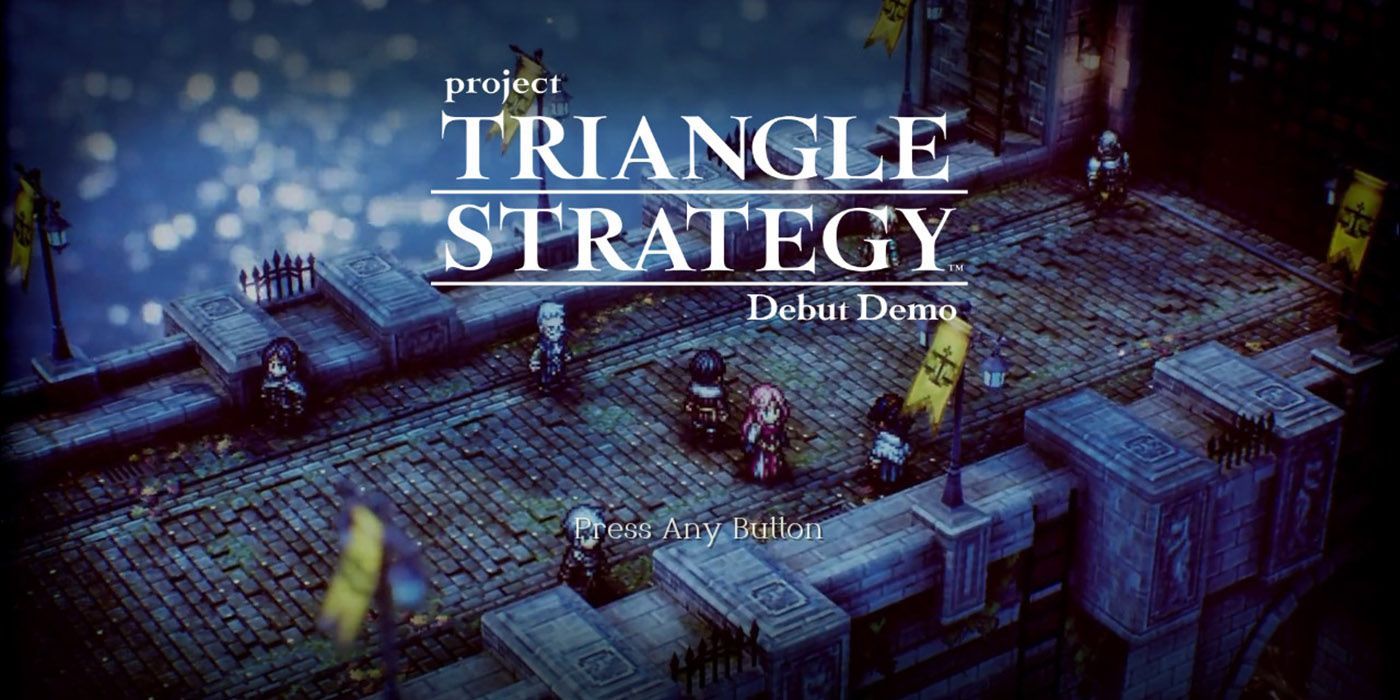
Three Kingdoms hanging on to a fragile peace. An invading force tosses a match into the political tinderbox. In an instant, the pale, flickering cease fire becomes an inferno of war and aggression. This is what players of the recently released Project Triangle Strategy demo are in for.
Included as part of the February 17th Nintendo Direct, Project Triangle Strategy appeared out of nowhere from Square Enix. Described as the "latest in the HD-2D series," Triangle Strategy comes from the Octopath Traveler lineage utilizing the impressive art style found in that title to make isometric, diorama-like spaces for players to explore. The game has already been compared to Final Fantasy Tactics (rightfully so), and while it is still a year away from release, the demo offers a great deal of information as to what the finished product will likely resemble.
RELATED: Fire Emblem: Three Houses Breaks Huge Series Record
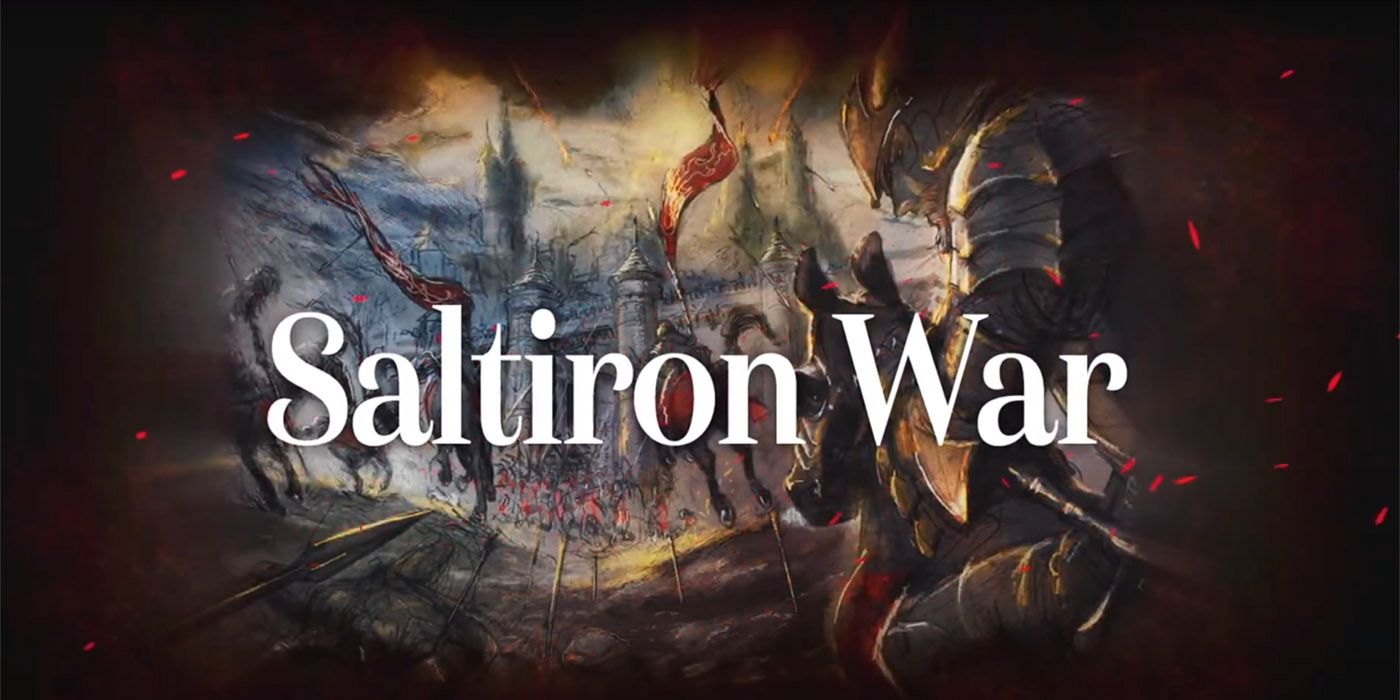
The three nations that make up the continent of Norzelia — Glenbrook, Aesfrost, and Hyzante — have struggled to find balance over the ages. Each nation controls a valuable resource in the region, and there is frequent conflict over which nation is the most important. This is the stuff of many a fantasy novel, or a number of Fire Emblem games. While it may seem a bit tired, these types of conflicts are employed often because they are an effective narrative trope. After an event known as "The Saltiron War" that had the three nations at each other's throats, there was a shaky declaration of peace.
The demo drops players into Chapter 6, "Remember Me," and is set during a tense moment in the Kingdom of Glenbrook's Whiteholm Castle. A note before starting the demo warns players that they are jumping into the middle of game, and as such there are a lot of moving parts already set in motion. Despite this, the narrative is easy to follow, and nicely sets the tone Triangle Strategy is trying to establish. Players will also tackle Chapter 7, "Forced Hands, Fractured Bonds," which deals with the fallout of Chapter 6 and is set in the domain of House Wolffort, the House of the protagonist Serenoa.
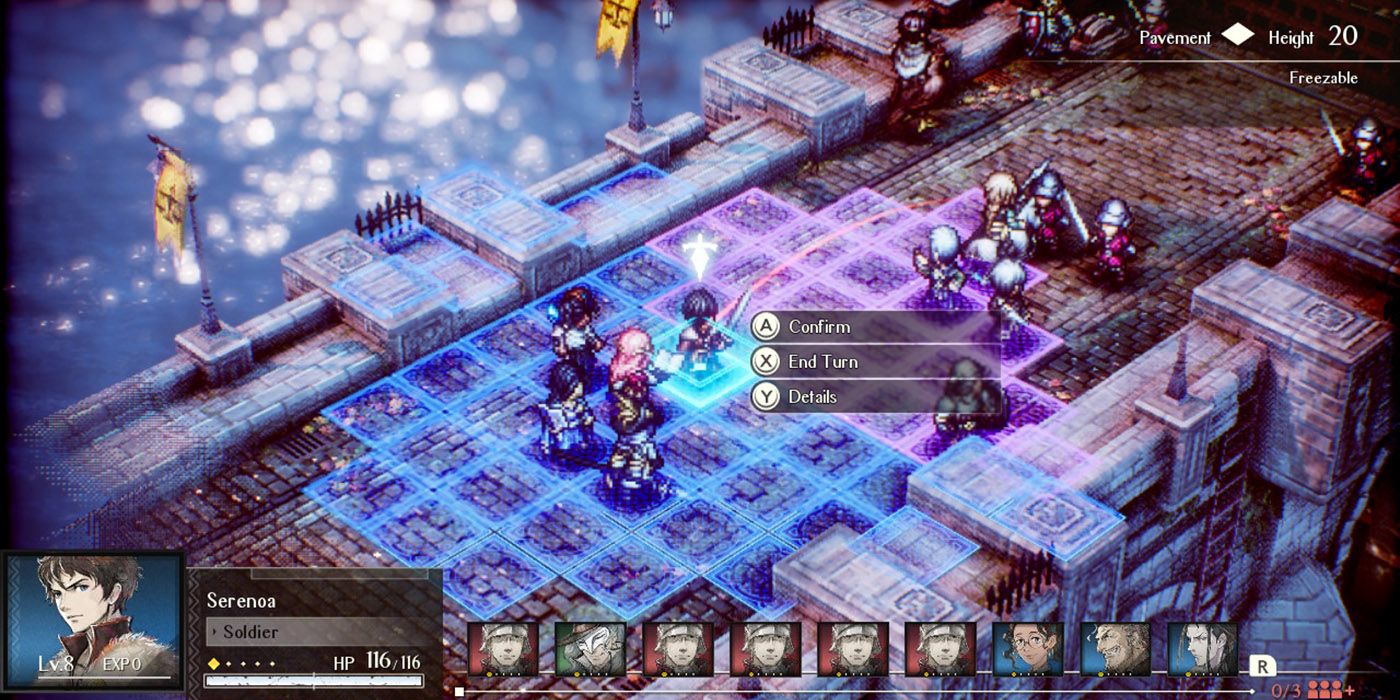
Most surprising about this new Strategy RPG is how closely the battle system resembles that of Final Fantasy Tactics. Fans have been asking for a new Final Fantasy Tactics game, and Triangle Strategy looks to be filling that role. Little details can be found in Triangle Strategy that are nods to Final Fantasy Tactics, such as the cursor for selecting a character in battle being a sword, and the way the camera zooms in when a special attack or spell is cast.
When it comes to movement around the battle map, Triangle Strategy employs a grid to show players how far a character can move. This is pretty common for an SRPG, but the look of the grid has a Final Fantasy Tactics aesthetic to it. Elevation and terrain type look to play an important part in the game as well, much like they did in Final Fantasy Tactics.
In the demo, players get a chance to experiment with freezing the ground, doing so causes a 30% decrease in characters' ability to dodge and a 30% lower chance of connecting with an attack. There is also a movement penalty incurred when moving across the frozen terrain. It is likely there will be a wide range of terrain conditions players will encounter or be able to cause.
Sharing in common one more element of Final Fantasy Tactics' battle system, Triangle Strategy employs a turn-based system, with turn order visible across the bottom of the screen. In Final Fantasy Tactics, the turn order was tucked into a menu but could be accessed to plan appropriately, and Triangle Strategy is doing the same here. The visual of the turn order resembles that of Final Fantasy 10's excellent battle system.
One change in Triangle Strategy is how special attacks and magic are used. Gone is MP and in its place is TP, which builds as the fight goes on. Similar to Octopath Traveler's boost system, a point of TP is gained each turn for a character and can be stored, and with enough TP, the character can perform more powerful attacks and spells.
RELATED: Bravely Default 2's Job System Borrows Heavily From Final Fantasy Tactics
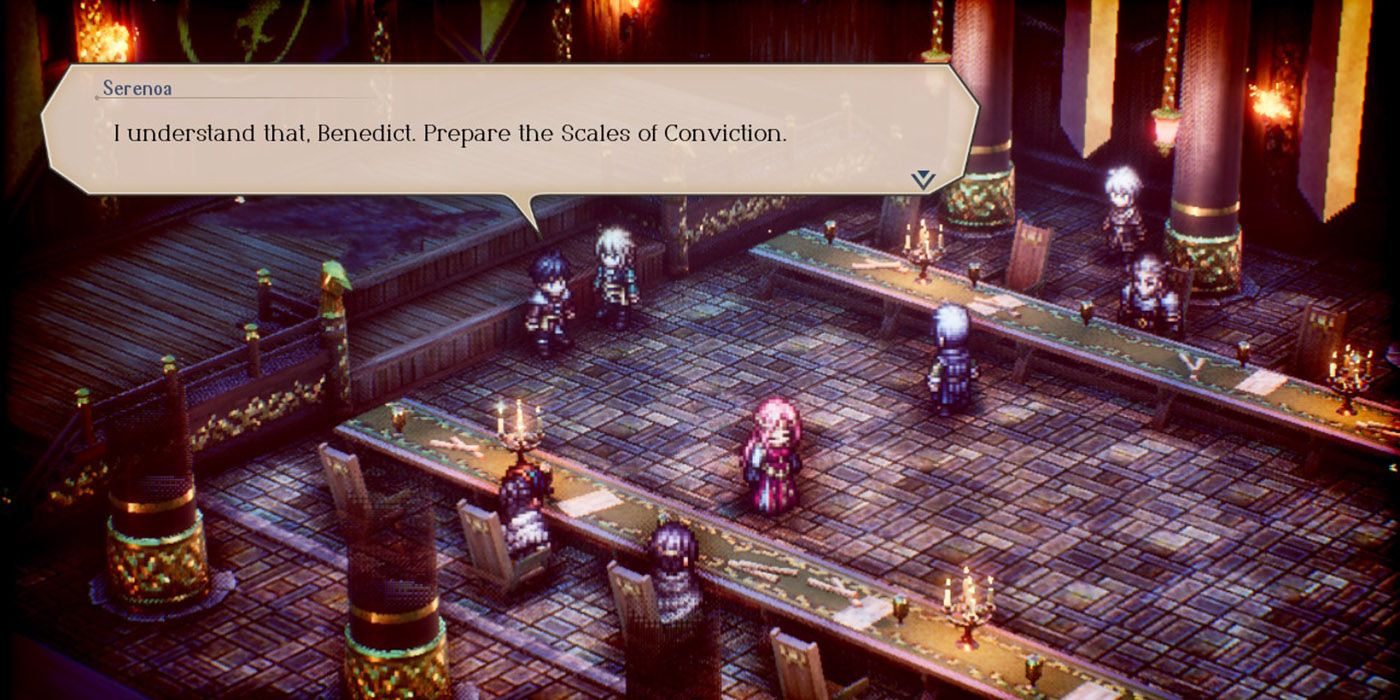
"Those who value virtuous morality... Those who respect the liberty of all... Those who pursue pragmatic utility." These are the three quotes featured in the reveal trailer that look to loom large over Triangle Strategy. Touted as a major component of Triangle Strategy, decisions made at key narrative moments could have a ripple effect through the game. This is something a lot of games like to promote as a feature. A changing narrative impacted by player decisions. The Walking Dead games did this to great effect, while more recently Cyberpunk 2077 had players making decisions that impacted the game less.
In Triangle Strategy, players take control of Serenoa in "Exploration" segments, sandwiched between story moments and battles. During these, the player can speak to characters looking to their leader for advice. The player is presented with three responses to choose from, which have an impact on Serenoa's "Conviction." The game explains Conviction as a sort of reputation system, wherein other characters may join Serenoa's cause based on where his convictions lie.
In Chapter 7, players get the opportunity to make use of the "Scales of Conviction" to reach a group consensus on a course of action. This is where the biggest changes to the narrative could be felt in Triangle Strategy. A decision has to be made, and the members of the party all vote. The player learns which way party members are leaning, but can persuade them to change vote if the player presents them with key information, gathered in an Exploration segment. The narrative swings could be huge, and could make Triangle Strategy a great game where decisions matter. Or it could give the illusion of choice, though it remains to be seen how effective this mechanic will be.
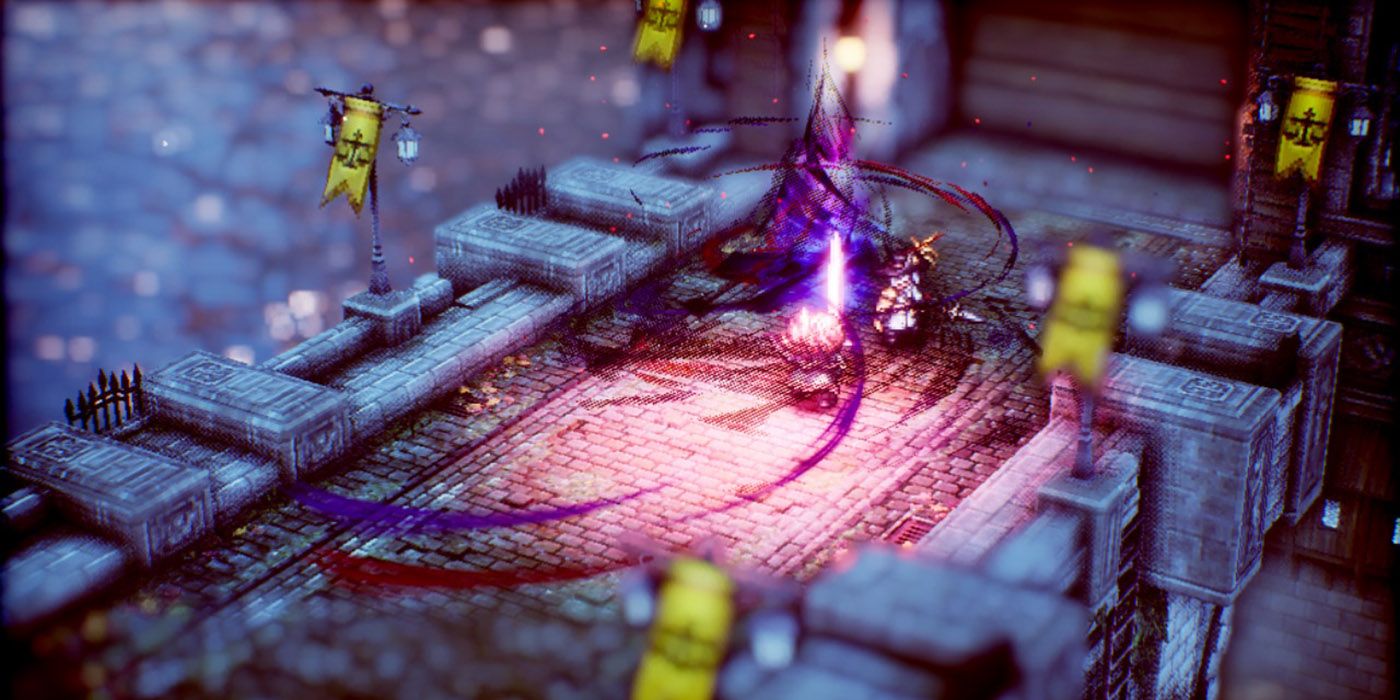
One thing fans have asked about is whether there is an FF Tactics-style job system to speak of. The demo shows each character as having a "job" as it were, but there is no indication that this can be changed, nor are there "Job Points" like there were in Final Fantasy Tactics. All that can be found is a collective "Kudos Points" system, earned by performing specific actions in battle, that can be used to add new abilities to a character. Other features of the Kudos system have yet to be revealed, so it could be expanded upon to include something closer to job points later on.
Lastly, upon completing the demo, players are given a look at some key staff members working on Triangle Strategy. The game's concept and production is helmed by Tomoya Asano, who worked on Bravely Default and Octopath Traveler. He also has a project management credit on Final Fantasy Tactics: War of the Lions, so there is some connection there.
In addition, the studio handling development, Artdink, has a working relationship with Square Enix, having worked on the PlayStation ports for the Tactics Ogre series (the precursor to Final Fantasy Tactics). Artdink's most recent project, a remake of the Sega Genesis platformer Wonder Boy: Asha in Monster World, is a very different game, but shows the studio's ability to look back at what made a game from the past great and update it for modern audiences.
After Octopath Traveler delivered an impressive soundtrack, fans are hoping for more of the same, and in that respect the game should deliver with Akira Senju listed as the composer. Senju is best known for his work on the excellent anime Fullmetal Alchemist Brotherhood. He was able to capture the action-packed fight sequences, as well as the tender, emotional moments of the Elric brothers journey with a number of standout pieces.
Triangle Strategy's demo gives fans a good look at what is to come from the Octopath division at Square Enix. The DNA of Final Fantasy Tactics runs through Triangle Strategy, as it looks to take up the mantle as a spiritual successor to the franchise.
Project Triangle Strategy is scheduled for a 2022 release on Nintendo Switch.
MORE: Fire Emblem Fates' Ambitions Set the Stage for Three Houses' Success

